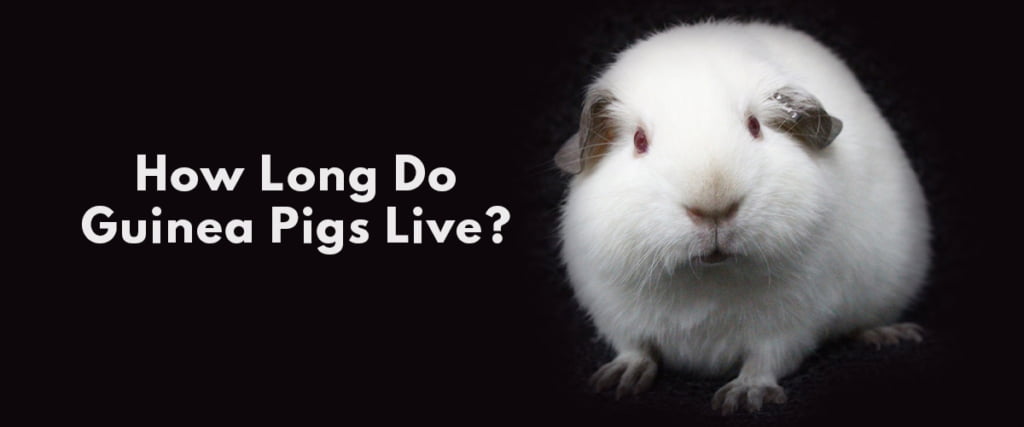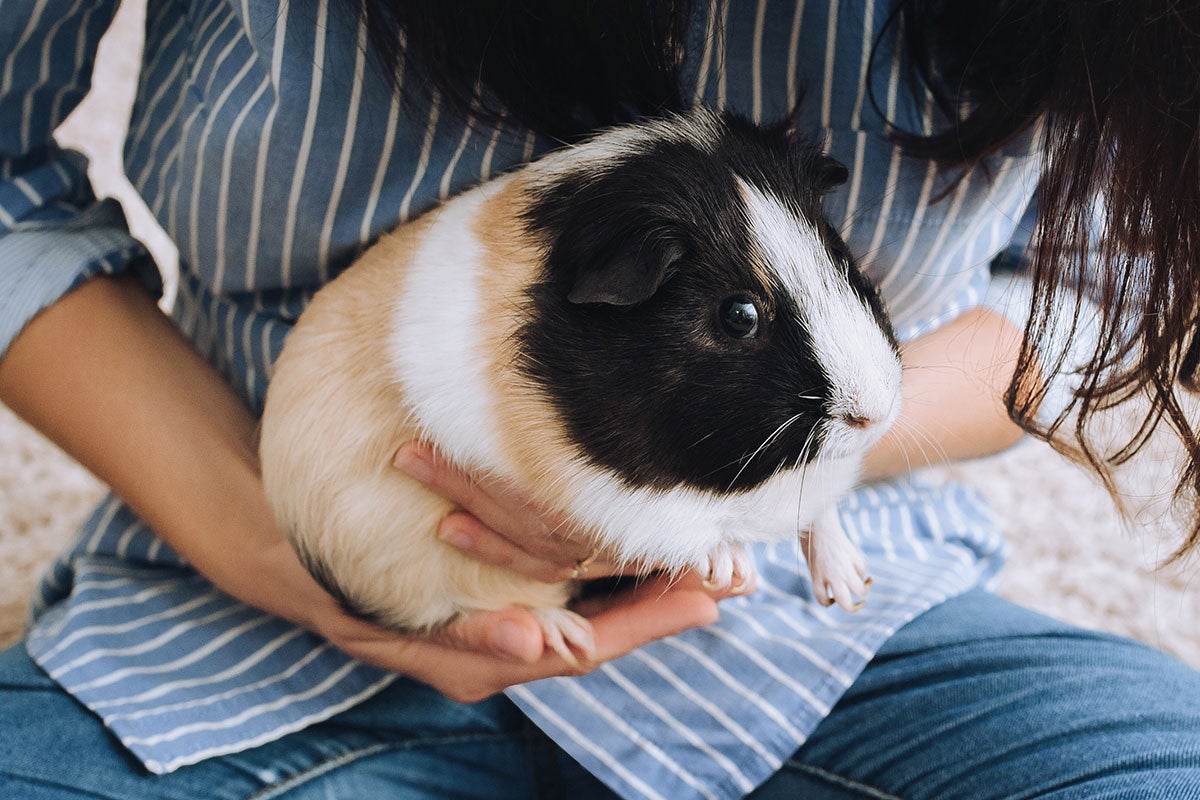Lifespan of Guinea Pigs A. Average lifespan
Factors affecting lifespan a. Genetics: Genetic predispositions can play a significant role in determining a guinea pig’s lifespan. Some genetic conditions may predispose certain individuals to health problems that can affect their longevity. b. Diet and nutrition: Proper diet and nutrition are essential for maintaining the health and longevity of guinea pigs. A balanced diet rich in hay, fresh vegetables, and vitamin C is crucial for their well-being. Poor nutrition can lead to various health issues that may shorten their lifespan. c. Housing and environment: Providing a suitable housing environment is essential for guinea pigs’ health and longevity. A clean and spacious cage with proper ventilation and access to fresh water is necessary. Additionally, avoiding extremes in temperature and exposure to potential hazards can help prolong their lifespan. d. Veterinary care: Regular veterinary check-ups and preventive care are vital for ensuring guinea pigs’ health and detecting any potential health issues early. Prompt treatment of illnesses and vaccinations against common diseases can contribute to their longevity. e. Exercise and socialization: Guinea pigs require regular exercise and social interaction to stay physically and mentally healthy. Providing opportunities for exercise, such as a spacious enclosure with tunnels and toys, and regular interaction with their owners or other guinea pigs can contribute to their overall well-being and lifespan.
B. Longevity variations among different guinea pig breeds
Different guinea pig breeds may have varying lifespans influenced by factors such as genetics, size, and predisposition to certain health conditions. Some breeds may have longer lifespans compared to others due to their genetic makeup and overall health.
C. Comparison with other small pets
In comparison to other small pets such as hamsters, gerbils, and mice, guinea pigs generally have a longer lifespan. While individual lifespans may vary depending on factors like breed and care, guinea pigs typically live longer than most small rodent species. This longer lifespan can make them attractive pets for individuals seeking a longer-term commitment and companionship.
Factors Affecting Guinea Pig Lifespan A. Genetics
Inherited health conditions: Guinea pigs may inherit certain health conditions from their parents, which can affect their lifespan. These conditions could include genetic disorders, susceptibility to illnesses, or predispositions to specific health issues.
B. Diet and Nutrition
Importance of proper diet: Providing a balanced and nutritious diet is crucial for maintaining guinea pigs’ health and longevity. A diet consisting mainly of hay, fresh vegetables, and vitamin C-rich foods is essential for meeting their dietary requirements.
Common nutritional deficiencies: Lack of access to fresh water, insufficient intake of vitamin C, or an imbalanced diet lacking in essential nutrients can lead to nutritional deficiencies in guinea pigs, impacting their overall health and lifespan.
C. Housing and Environment
Suitable living conditions: Guinea pigs require a clean and spacious living environment with adequate ventilation and access to fresh water and food. Proper bedding material and shelter are also necessary for their well-being.
Avoiding stressors and hazards: Exposure to stressful environments or hazards such as extreme temperatures, drafts, loud noises, or toxic substances can negatively impact guinea pigs’ health and shorten their lifespan. Providing a safe and stress-free environment is essential for promoting longevity.
D. Veterinary Care
Regular health check-ups: Routine veterinary examinations are crucial for monitoring guinea pigs’ health and detecting any potential issues early on. Regular check-ups allow veterinarians to address health concerns promptly and provide necessary treatment.
Vaccinations and preventive care: Vaccinations against common diseases and preventive measures such as parasite control and dental care can help prevent illnesses and promote guinea pigs’ overall health and longevity.
E. Exercise and Socialization
Need for mental and physical stimulation: Guinea pigs require regular exercise to stay physically fit and mentally stimulated. Providing opportunities for exercise, such as a spacious enclosure with toys and tunnels, encourages physical activity and prevents boredom.
Social interaction with humans and other guinea pigs: Guinea pigs are social animals that thrive on companionship. Regular interaction with their owners and opportunities to socialize with other guinea pigs can improve their overall well-being and contribute to a longer, happier life.
Ways to Extend Guinea Pig Lifespan A. Providing a balanced diet
Ensuring that guinea pigs receive a balanced diet rich in hay, fresh vegetables, and vitamin C is crucial for maintaining their health and extending their lifespan. A well-rounded diet provides essential nutrients and supports the immune system, helping to prevent nutritional deficiencies and related health issues.
B. Ensuring a safe and comfortable living environment
Providing a safe and comfortable living environment is essential for guinea pigs’ well-being and longevity. This includes a spacious cage with proper bedding, adequate ventilation, and access to clean water and food. Avoiding exposure to extreme temperatures, drafts, and potential hazards such as toxic substances or sharp objects can help ensure a safe environment for guinea pigs to thrive.
C. Regular veterinary check-ups and medical care
Scheduling regular veterinary check-ups is vital for monitoring guinea pigs’ health and addressing any health concerns promptly. Veterinarians can provide preventive care, such as vaccinations and parasite control, to protect against common diseases. Early detection and treatment of health issues can significantly impact guinea pigs’ lifespan and quality of life.
D. Providing opportunities for exercise and mental stimulation
Offering opportunities for exercise and mental stimulation is essential for promoting guinea pigs’ physical and mental health. Providing a spacious enclosure with toys, tunnels, and other enrichment activities encourages physical activity and prevents boredom. Additionally, rotating toys and providing novel experiences can stimulate their minds and prevent behavioral problems.
E. Proper handling and socialization
Proper handling and socialization are crucial for guinea pigs’ well-being and social development. Gentle and regular handling from an early age helps guinea pigs become accustomed to human interaction, reducing stress and fear. Additionally, providing opportunities for socialization with other guinea pigs promotes positive social behaviors and mental stimulation, contributing to a longer and happier life.
Frequently Asked Questions (FAQs) About Guinea Pig Lifespan 1. How long do guinea pigs typically live?
On average, guinea pigs live between 5 to 7 years, although some may live longer with proper care and genetics.
2. What factors influence a guinea pig’s lifespan?
Several factors can affect a guinea pig’s lifespan, including genetics, diet and nutrition, housing and environment, veterinary care, and exercise and socialization.
3. What can I do to help extend my guinea pig’s lifespan?
To help extend your guinea pig’s lifespan, provide a balanced diet, ensure a safe and comfortable living environment, schedule regular veterinary check-ups, provide opportunities for exercise and mental stimulation, and practice proper handling and socialization.
4. How can I ensure my guinea pig receives a balanced diet?
A balanced diet for guinea pigs includes hay, fresh vegetables, and vitamin C-rich foods. Ensure they have access to fresh water at all times and avoid overfeeding or feeding them foods that are toxic to them, such as chocolate or onions.
5. What are some signs that my guinea pig may be experiencing health issues?
Signs of health issues in guinea pigs may include changes in appetite, weight loss, lethargy, abnormal breathing, diarrhea, discharge from the eyes or nose, hair loss, or changes in behavior. If you notice any of these signs, it’s essential to consult a veterinarian promptly.
6. Can guinea pigs live alone, or do they need companionship?
Guinea pigs are social animals and generally thrive with companionship. While they can live alone, they may become lonely or bored without a companion. Providing them with opportunities for social interaction with other guinea pigs or spending quality time with them yourself can help prevent loneliness and improve their overall well-being.
7. How can I ensure my guinea pig’s living environment is safe?
To ensure your guinea pig’s living environment is safe, provide a spacious cage with proper bedding, ventilation, and access to clean water and food. Avoid exposing them to extreme temperatures, drafts, or potential hazards such as toxic substances or sharp objects.
8. Are there any specific health concerns I should be aware of with guinea pigs?
Some common health concerns in guinea pigs include dental problems, respiratory infections, skin issues, and digestive issues. Regular veterinary check-ups and providing a balanced diet and proper housing can help prevent these health issues.


